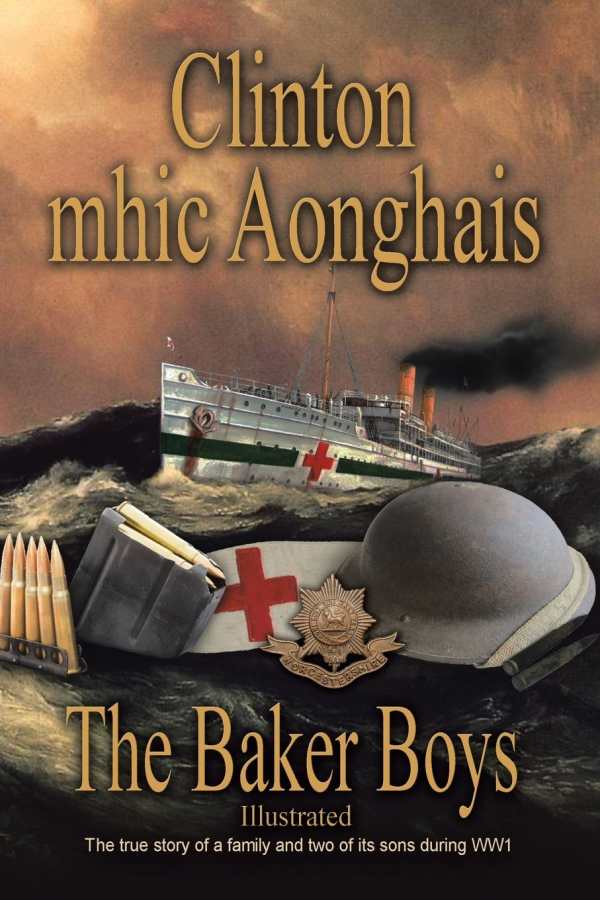The Baker Boys
This intricate analysis of the First World War adds a human element by interweaving the account of one family’s history.
Clinton mhic Aonghais’s massive historical tome covers a variety of World War I military engagements, particularly those connected to the Baker family of England and New Zealand. Exhaustive research peppered with philosophical asides characterize the work, which is both informative and impressive in scope.
Mhic Aonghais settles upon the Bakers as the central family in his war history somewhat providentially, after intensive conversations with Russell Baker, who kept his grandfather’s war journals alongside a keen sense of historical connectivity. Late in the book, the author reveals that Victor Baker, who is the work’s primary individual focus, served alongside the author’s own grandfather in Palestine. “It was as though fate had decreed that hopefully future generations might show an interest to learn a little from history or in the remembrance of others,” mhic Aonghais writes, a romantic musing that aligns neatly with others sprinkled throughout the work.
Still, the Bakers themselves are sometimes obscured behind meticulous recountings of the battles they participated in, cleaned up after, or travailed alongside. Mhic Aonghais juggles primary source material, from soldier letters to newspaper accounts, to illustrate just how much went into the war effort. Changes in nursing, technology, and war methodology are all recounted. The author provides insight into what the war was like for those at home—food shortages and zeppelin bombings are both recalled—as well as what it was like for those on the ground, with the horrors of trench warfare, underpreparedness, and the introduction of lethal gas brought to the fore.
Into these scenes, the Baker brothers’ lives are woven. Malcolm, who fell in France not far into his tenure, receives some space, but Victor, part of the war’s medical personnel, is afforded the bulk of the focus. While his time on medical ships includes a fair amount of in-port touring—shore visits in the Caribbean, as well as along the Mediterranean coast, sometimes read more like fun excursions than they do wartime undertakings—Victor turns toward the conflict itself near the end of the war, after his brother’s death. His exploits in Palestine, particularly at the massacre of Surafend, are the closest he gets to multiple engagements.
Mhic Aonghais certainly masters contextualization, if his efforts to place the Bakers within the scope of history sometimes lead to the men getting a little lost in the shuffle. There is much to learn about various World War I engagements here, and the author’s retellings are illuminating. Occasional turns toward the romantic—a soldier rolls a stone between his fingers in the “exact spot that a young lad by the name of David had done likewise”; Victor’s tours of the countryside take him through “gently undulating parkland”; the nobility of nurses is meditated upon—can be a bit irruptive, but do help to humanize the war efforts.
Undoubtedly, some of this material might have been trimmed without detriment to the whole. At times, it seems as if mhic Aonghais was intent upon preserving all he learned, and while the breadth of his research does impress, it also makes the work appear imposing. Nevertheless, historically minded readers are certain to find rewards for their efforts.
Reviewed by
Michelle Anne Schingler
Disclosure: This article is not an endorsement, but a review. The publisher of this book provided free copies of the book and paid a small fee to have their book reviewed by a professional reviewer. Foreword Reviews and Clarion Reviews make no guarantee that the publisher will receive a positive review. Foreword Magazine, Inc. is disclosing this in accordance with the Federal Trade Commission’s 16 CFR, Part 255.

